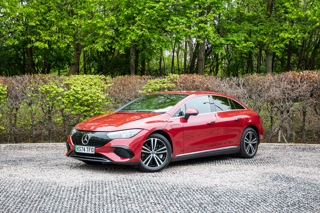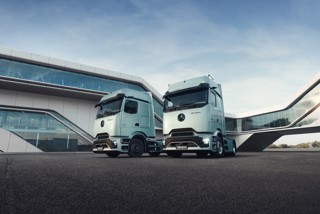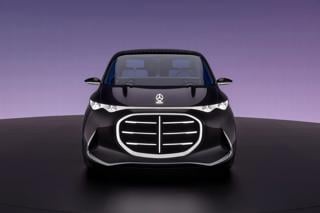Mercedes-Benz has outlined ambitious plans to become the biggest selling premium manufacturer in the UK fleet market by 2016, leapfrogging German rivals BMW and Audi.
Nick Andrews, head of fleet sales at Mercedes-Benz, said the target was to increase its corporate sales from just over a predicted 43,000 this year to just under 63,000 in 2016, with total UK registrations for Mercedes-Benz of 130,000 for that year. Total registrations in 2011 were almost 82,000 cars.
It has targeted becoming the biggest premium car brand overall in the UK by 2017, and globally by 2020.
Some of the growth will come from additional model lines, but Andrews has identified the contract hire sector as a key opportunity to increase sales, while the new A-Class is expected to appeal to bring younger drivers to the brand.
He has also vowed to ensure customers find it easy to do business with the brand, something which he said has not been the case and that has driven away potential sales.
He said in a briefing to chief executives of contract hire and leasing companies: “Our key competitors outperform Mercedes-Benz by three-to-one in contract hire and leasing. We have made huge progress in the past 12 months and we have had to change because there is no way we can achieve our ambition to increase sales by 20,000 in 2016.”
Figures show Mercedes-Benz has reduced the volume it sells into short-cycle rental (2010: 6,225; 2011: 5,344) although Andrews said the current level of about 4,500 units a year should remain static, pointing out that “many conquest customers will have chosen a Mercedes-Benz as a result of driving a rental car”.
CAP Monitor editor Jeff Knight said he believed such an increase in Mercedes-Benz sales should not have a negative impact on residual values if made through incremental growth introducing new model lines.
He told Fleet News: “In broad terms it shouldn’t be a problem, particularly when you see that Mercedes-Benz now has a credible C-sector car in the new A-Class, which will take a large share of these extra sales.”
Andrews said that 10 years ago Mercedes-Benz was the largest premium brand in the UK fleet market, but since then had suffered from a lack of consistency in its strategy, which at times seemed firmly focused on retail sales.
Mercedes-Benz had also fallen behind when it came to fuel economy and CO2 emissions, which have become increasingly important to fleets, although it had made up ground and caught up in recent years.
“We are serious about fleet,” said Andrews. “We have to ensure we have the right people operating the best and most efficient processes in our business. We have to have a product range that is relevant to the fleet market.”
He also addressed the subject of brokers, some of which have been offering certain Mercedes-Benz models at what seem to be very low monthly rentals, such as £200 below a standard contract hire rate for a C-Class saloon.
Industry insiders have indicated concern over the impact on residual values, although other premium brand cars have also been seen advertised in a similar way.
“If you think for one minute that our strategy is to sell directly into the brokers’ channel, I can tell you now that it isn’t,” Andrews said. “Brokers will always be there and are an important part of the automotive industry. Our strategy is not to have Mercedes-Benz models advertised in shop windows.”
He suggested that some of the deals being offered by brokers would not be possible without making a loss.
“Our strategy is to pursue more quality long-term business with PLCs and SMEs,” added Andrews.



















Login to comment
Comments
No comments have been made yet.